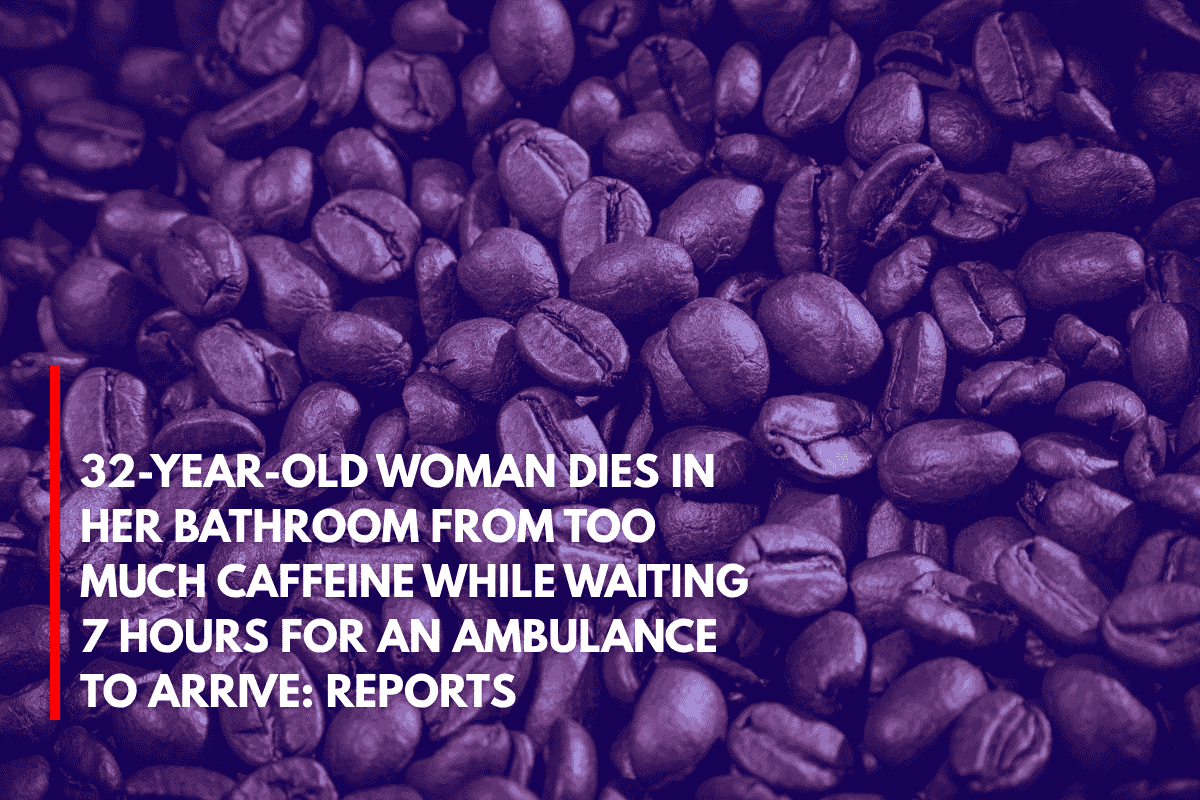In a tragic case in Melbourne, Australia, a woman died from a caffeine overdose in April 2021 after waiting seven hours for an ambulance to arrive. Christina Lackmann, a 32-year-old biomedical sciences student, passed away alone in her bathroom after calling emergency services due to feeling dizzy and numb.
Initial Call for Help
According to the coroner’s report, Christina made the emergency call at 7:49 pm on April 2021, reporting symptoms of feeling sick, numbness across her body, and dizziness.
However, her case was initially classified as non-urgent, and she was deemed suitable for an Ambulance Victoria Referral Service Triage Practitioner (RSTP), such as a paramedic or nurse. Unfortunately, all RSTPs were busy at the time, leading to an unsuccessful transfer.
The Ambulance Victoria staff attempted to contact Christina repeatedly. They made a total of 14 call-backs, including one after 26 minutes and three additional attempts between 8:17 pm and 9:14 pm, but none were answered. A text message was sent to Christina’s phone, informing her of their efforts to reach her.
Delays in Medical Response
During the evening, a paramedic was assigned to Christina’s case on two separate occasions between 9:14 pm and 1:46 am. However, these calls were diverted to higher-priority emergencies, further delaying medical assistance.
By the time Ambulance Victoria finally arrived at 2:23 am, Christina had already passed away in her bathroom. A neighbor helped bring her inside, and she was found deceased. Her dog was found barking nearby.
Caffeine Overdose Discovery
While Christina had not mentioned taking caffeine tablets during her call, investigators later found that she had ordered caffeine tablets that arrived at her apartment on the same day she called emergency services.
A toxicology report showed that Christina had extremely high levels of caffeine in both her blood and stomach. Experts believe that had the emergency call-taker known about the caffeine ingestion, appropriate medical treatment could have been administered sooner.
Associate Professor Narendra Gunja, an expert in toxicology, stated that earlier intervention with treatments like antidote therapy and haemodialysis might have saved Christina’s life. He noted that timing was critical but could not pinpoint a specific moment when her death could have been prevented without this information.
Coroner’s Findings
Coroner Catherine Fitzgerald concluded that Christina could have survived had she been attended to sooner. Fitzgerald also pointed out that Christina’s case should have been transferred to a health practitioner right away for further assessment.
Ongoing Investigation
The investigation into this case continues, with Ambulance Victoria and Victoria Police yet to respond to inquiries from PEOPLE. This tragic incident highlights the importance of timely medical intervention and proper communication during emergency calls, especially in cases involving dangerous substances like caffeine.











Leave a Reply